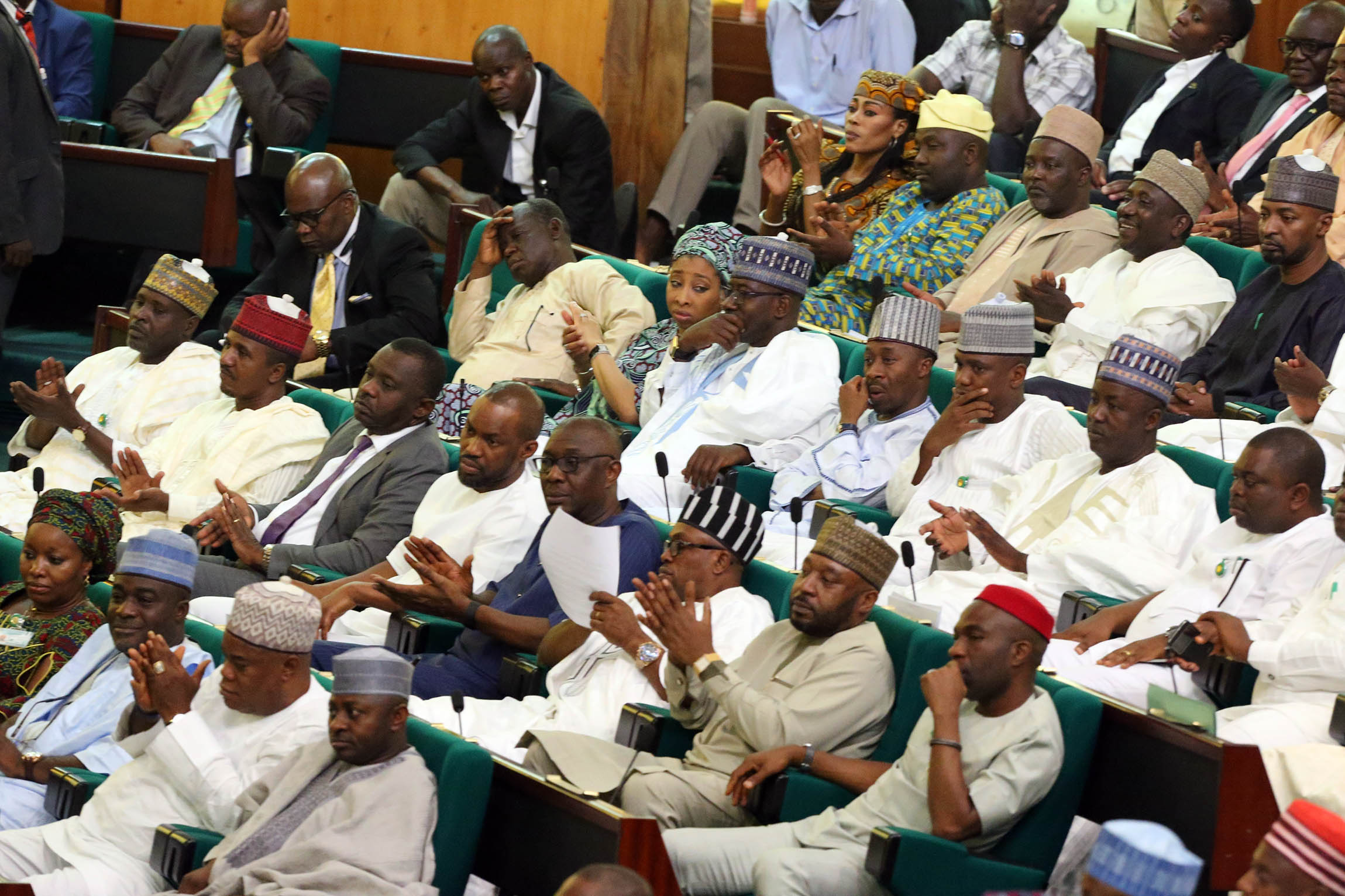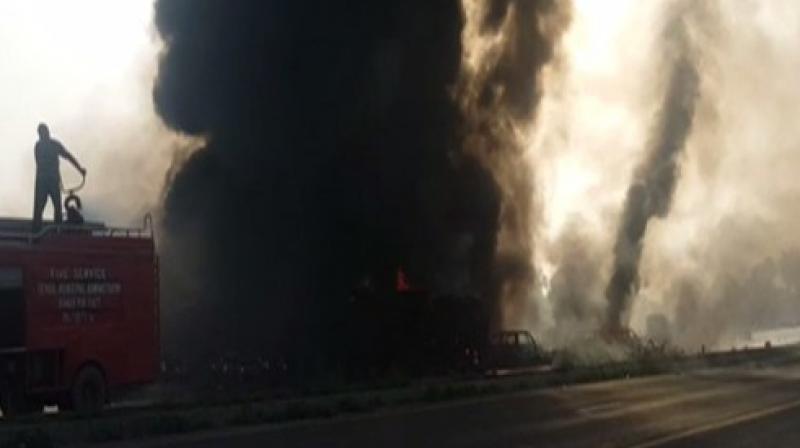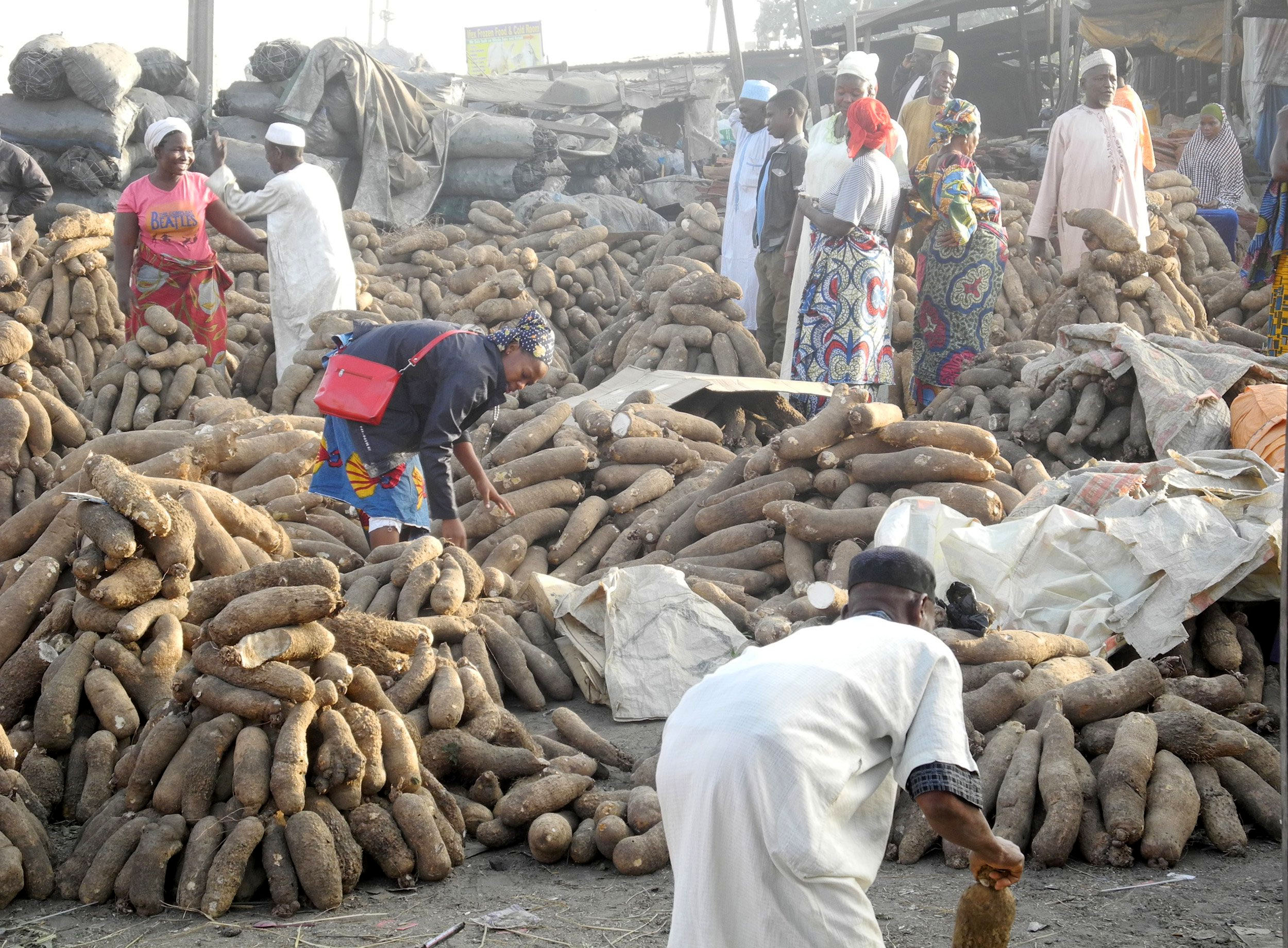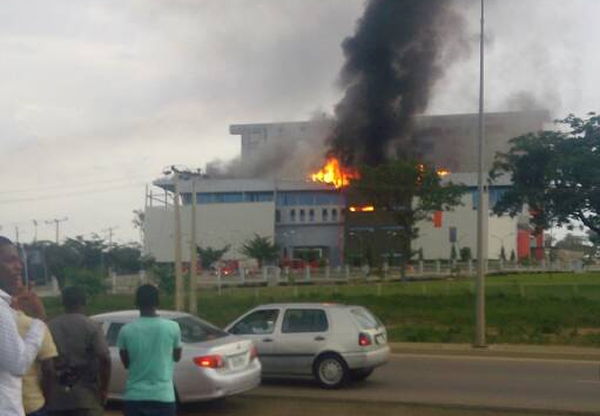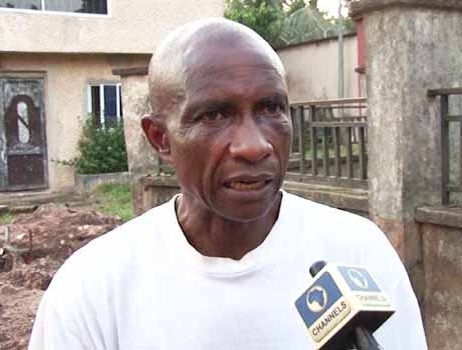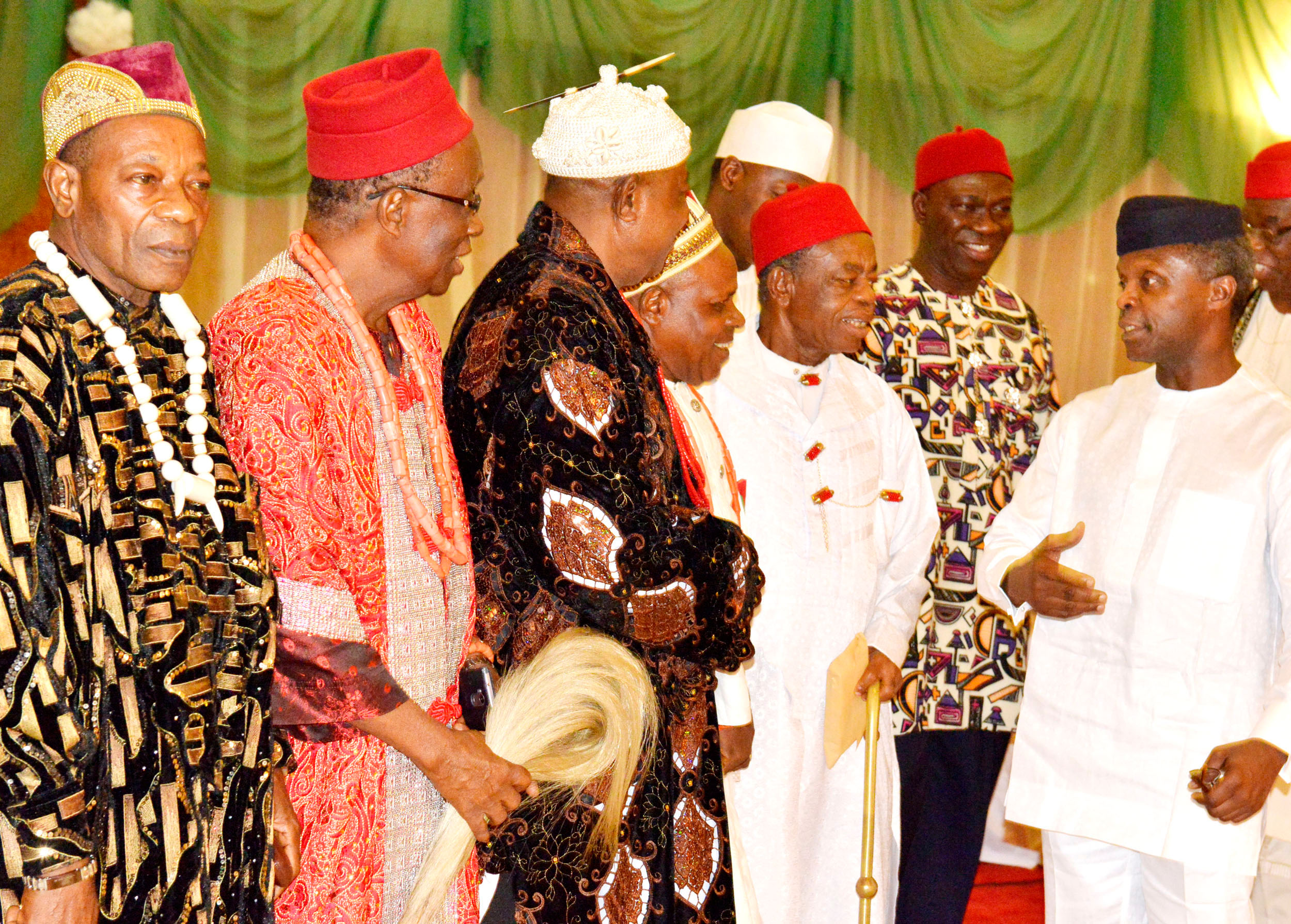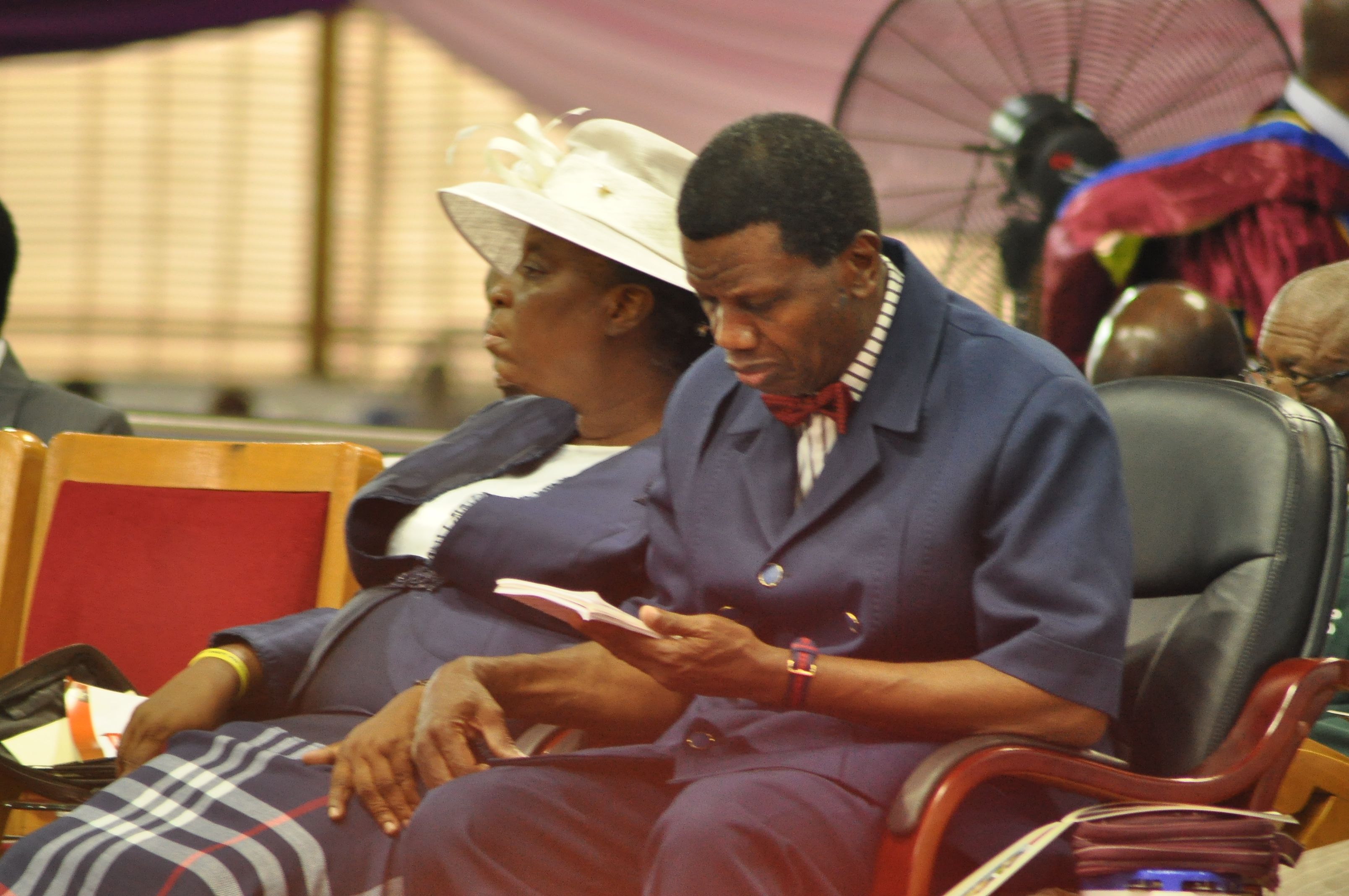Cross Section of members of the National Assembly as President Zuma Addresses a joint session of the National Assembly in Abuja.
Something is wrong with anybody who says there is nothing wrong with Nigeria. We all seem to agree that something is not working. We all seem to concur that this is not the best Nigeria can be. We all seem to believe that something major needs to be done for us to make progress. What we lack is a consensus on what the actual problem is, and what the solution should be. The diagnoses are different and the prescriptions are inevitable different. Those who think the problem is Lord Lugard want disintegration. Those who think it is the law want a new constitution. Those who think it is religion want to set up a caliphate. Et cetera, et cetera.
Alas, the political firmament is filled with hardliners — the “my way or the highway” brigade — and what hard-line positions do is to place emotions above logic and blind the mind to possibilities. One-track minds are a danger to any society. Politics is always seen by many as a zero-sum game — “your gain is my loss” — but there is always the chance of a third way where there’s a win-win. A multi-ethnic, multi-religious and volatile polity like ours can use some less hard-line positions in devising the best way forward. That Nigeria needs to be restructured to deliver better development outcomes is becoming more glaring by the day, and we can’t deny it.
I will place a number of restructuring proposals on the table today, all informed by my basic theory that at the very root of our frequent political squabbles is the gross underdevelopment in the land. When the vast majority of the population are living in poverty, denied the basics of living life meaningfully, we can’t have a better recipe for political instability than that. I believe we are doing such a bad job of navigating the political landmines on the road to development that we may not get there anytime soon. In short, I believe the political management of Nigeria is not working for all. The ethnic and religious tensions are provoked by political mismanagement, I should think.
The first item on my proposal agenda is “mental restructuring”. In my article, Restructuring the Debate on Nigeria (August 28, 2016), I pointed out the numerous development possibilities that currently exist which we are not exploiting because we keep blaming the structure of Nigeria. I wrote: “I, too, believe Nigeria needs to be reformed economically and politically. But listen to me: in spite of all the excuses we give for ‘why Nigeria is like this’… there is still a lot of lemonade we can make from these lemons. However, we are too lazy, too conceited, too deluded, too bitter, too parochial, too blinded to see the opportunities. All we can see are the problems.”
Advertisement
We must first liberate our minds to see the possibilities that exist for everyone. Most agitations for restructuring today are designed to spite the north, to make them look like they are finished without the Niger Delta oil. The resistance from the north is also fuelled by the fear that they are finished without the oil (this is changing, though). Yet, the indisputable fact is that we are all parasites on this oil. Not too long ago, the downturn in oil prices, coupled with militant activities, brought the economy to a standstill. We were all in soup. If oil prices had not recovered and militancy had continued, Nigeria would be paralysed by now. We must first restructure our minds to see this truth.
If we do not restructure our mindsets, we would still not see great opportunities even in a politically and economically restructured Nigeria. We would remain the same. Restructuring will not put better brains in our heads. Any mindset that is configured to see oil as the almighty (or “oilmighty”) will remain in economic prison whether or not Nigeria remains one or is broken into 250 countries, whether or not there is “true” federalism or “false” federalism. It is in the mind. If we do not get our perspectives right under the current structure, what are the chances that we will suddenly reason better under a different system? That is one question that needs to engage our minds.
My second proposal is “political restructuring”. Mine is different: I am not proposing confederalism, balkanisation or “true” federalism. Those things are rather too complicated for me to understand how they work. However, the truth is that with the amount of resources and tonnes of policies that we have been throwing into the system for ages, the outcomes are still, at best, mediocre. There is a gross mismatch between input and output. If a problem is too big to handle, maybe you start by breaking it into pieces. I am of the opinion that the time has come for the federal government to shed weight. It is time to perform another experiment since the current system is not working.
Advertisement
In my “political restructuring” proposal, I am not canvassing the creation of more states and more local government areas, neither am I suggesting a six-zone structure. Maybe those things are very good and will do wonders to our development process, but I cannot say that for sure. Rather, I align myself with those who think the centre is too concentrated and needs to be diluted. I have always believed the federal government is too big and too powerful, but I have not always pushed this argument because I am also disappointed with the performance of other tiers of government. I often tell myself that there are no guarantees of better outcomes if we give more powers to the states.
However, one very disturbing fact is that we seem to concentrate so much on Abuja that we don’t even know what is going on in our states. We complain about “budget padding” in the National Assembly but hardly look at “budget padding” in the state houses of assembly. We protest about federal roads being in bad shape but ignore the state of the local roads. We shout all the time about federal universities and ignore the state of schools that are not under the federal government. We grumble about nepotism in Aso Rock and forget about the one in our backyard. We are so Abujacentric that our governors are getting away with murder.
The federal government takes 56% of the federation revenue while the 36 states of the federation take 24% and the 774 councils take 20%. I think we have to restructure this vertical sharing formula urgently. Abuja will continue to insist on keeping 56% because of the responsibilities it is saddled with, but we can also relieve them of these responsibilities. Some have asked: what is federal government’s business with agriculture? It’s a good question. What is the business of federal government with secondary schools? There are so many items that can be handed over to the states. We need to make Abuja the least attractive of the tiers of government.
My third proposal is what I call “throat restructuring”. There is too much greed in public office and this has continued to deal deadly blows on our finances. I have heard many people argue that we should do away with the senate and operate a unicameral legislature. This, we are made to understand, will reduce cost. I beg to disagree. You can run a 109-member National Assembly that will gulp N1 trillion per year and a 400-member legislature that spends only N500 million. The constitution does not stipulate the allowances they award to themselves. The constitution does not stipulate the heavy allowances for the executive arm either. People just love to burn free money.
Advertisement
Let me summarise my arguments: one, we need to restructure our mentality so that we can recognise opportunities even within these present constraints; two, the federal government must shed weight and devolve more powers and more revenue to the states so that we can focus less on Abuja and look at our backyard; three, we need to restructure the throat of our public officers in all arms of government, so that the gluttony can be curbed, and we can free more resources for development. My proposals are not as complicated as “true federalism” and “regionalism”, so they can be a good starting point without much rancour. Other matters can come later.
AND FOUR OTHER THINGS…
THE CRIMEBUSTERS
Police recently arrested Chukwudidumeme Onuamadike aka Evans, the alleged notorious kidnapper, and we now have a running soap opera in our hands. Where in the world do you conduct investigation into heinous crimes on TV? For all you care, the investigation has been compromised. Co-conspirators and evidence could disappear. Nigerians love drama — so this Evans show really excites them. You cannot find this in a civilised country, which is partly why they are more efficient at fighting crimes. And can someone tell Abba Kyari, the police officer who led the mission, to keep a lower profile? Crime busters are not supposed to be celebrities, are they? Weird.
THE IGBONLA KIDNAP
Advertisement
On May 25, 2017, kidnappers stormed Lagos State Model College, Igbonla, Epe, and abducted six students. Reports said some officials of the school were also kidnapped. It is now a month and we are yet to get those unfortunate boys out of the paws of the kidnappers. Are we so preoccupied with other things that the case of the Igbonla Six has become irrelevant? Or have we seen so many crimes in this country that the kidnap of six teenagers is no longer worth our stress? I congratulate the police on the successful arrest of Evans the Notorious Kidnapper, but the job is not yet done. And we must get these hapless boys back by any means necessary. Imperative.
THE BACKSLIDERS
Advertisement
One step forward, two backward. That’s usually the story of Nigeria in most aspects of national life. Two years after we celebrated the role technology played in giving us a fairly credible election (I use “fairly” advisedly), you wonder why anyone would want to take us backward. For the July 22 Lagos council polls, the Lagos State Independent Electoral Commission (LASIEC) chairman, Justice Ayotunde Phillips, has told us that the agency will not use the card-reading machine. She said the date for the elections were too close for the card reader to be used. We are, therefore, back to the bad old days when identity theft was the in-thing at polls. Setback.
THE ALARMISTS
Advertisement
Any consumer of news in Nigeria will think Christian Religious Knowledge (CRK) has been removed from school curriculum while Islamic Religious Knowledge (IRK) is retained. And the plot to Islamise Nigeria is now at an “advanced state” because Arabic as a subject. In reality, CRK and IRK are in the curriculum of senior secondary school. At junior secondary, there is a subject called Religious and National Values which combines a choice between IRK and CRK with History and Social Studies. It was introduced in 2014 when President Jonathan, a Christian, was in power. Arabic, by the way, is not Islam; it is a language, just like French. Actually, I have seen an Arabic Bible before. Hysteria.
Advertisement

